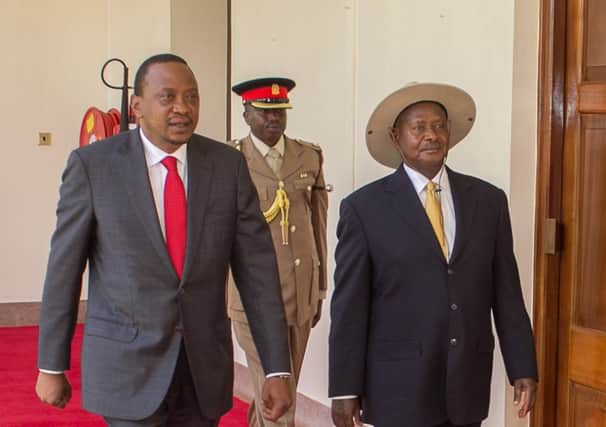South Sudan: President ready to end hostilities


The announcement raises hopes of a breakthrough in efforts to cease violence that has displaced more than 120,000 people.
East African leaders meeting in Kenya said in a statement they “welcomed the commitment by Mr Kiir’s government to an immediate cessation of hostilities.”
Advertisement
Hide AdAdvertisement
Hide AdBut former vice-president Riek Machar, Mr Kiir’s political rival who is accused of orchestrating a failed coup that the government says ignited unrest across the oil-producing country, was not represented at the summit in the Kenyan capital, Nairobi.
The joint statement urged Mr Machar to “make similar commitments” to end hostilities.
Mr Machar, the alleged leader of renegade forces now in control of some parts of South Sudan, remains a fugitive wanted by the military. At least ten of his political allies are in detention for their roles in the alleged coup plot.
Mr Machar denies a coup attempt, and some officials with the ruling party insist violence broke out when presidential guards from Mr Kiir’s majority Dinka tribe tried to disarm guards from the Nuer ethnic group of Mr Machar, leading to wider ethnic clashes.
Mr Machar, a politician who appears to command the loyalty of Nuer army officers, has criticised Mr Kiir as a dictator and says he will contest the 2015 presidential election. Mr Kiir had fired Mr Machar as his deputy in July following a power struggle within the ruling party, stoking ethnic tensions in a country with a history of divided military loyalties.
Mr Kiir received a boost yesterday in Malakal, capital of South Sudan’s major oil producing state of Upper Nile, where government forces defeated rebels loyal to Mr Machar after four days of intense fighting.
“[Government forces] are 100 per cent in control of Malakal town and are pursuing the forces of the coup,” army spokesman Philip Aguer said in South Sudan’s capital Juba.
In a speech at the Nairobi summit, Kenyan president Uhuru Kenyatta had noted that there is “a very small window of opportunity to secure peace” in South Sudan, where fighting since 15 December has raised fears of full-blown civil war.
Advertisement
Hide AdAdvertisement
Hide AdSouth Sudan peacefully broke away from Sudan in 2011 after decades of a brutal war of independence fought against Sudan. The young country has been plagued by corruption and ethnic tensions.
The number of displaced people continues to rise, with many seeking shelter at United Nations’ compounds. There are sporadic military clashes in the oil-rich states of Unity and Upper Nile, potentially endangering the oil revenues that South Sudan depends on to keep the government running.
The top UN humanitarian official in South Sudan, Toby Lanzer, said earlier this week that he believes the death toll has surpassed 1,000. The UN is investigating alleged mass killings.
“We have heard reports of extra-judicial killings, arbitrary detentions of civilians, ill-treatment, abuse and also mass graves,” said Hilde Johnson, head of the UN mission. “Our human rights officers are investigating these reports and allegations.”